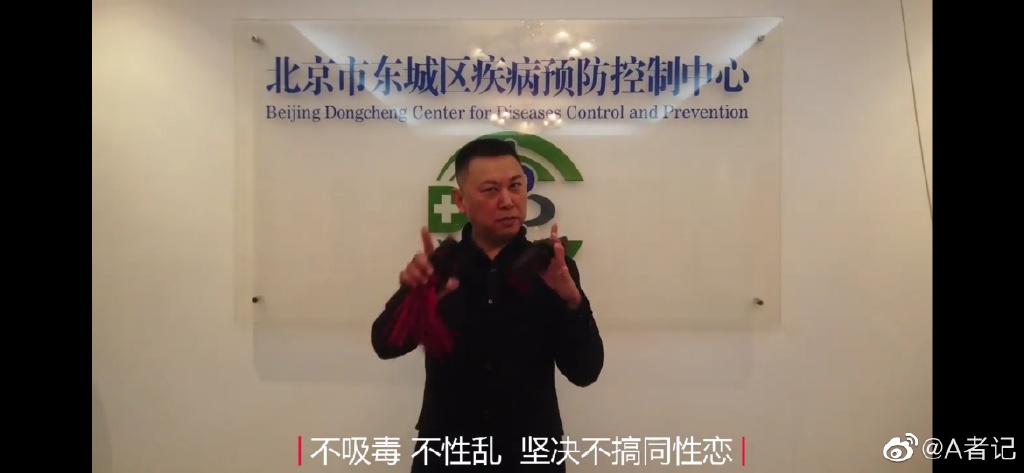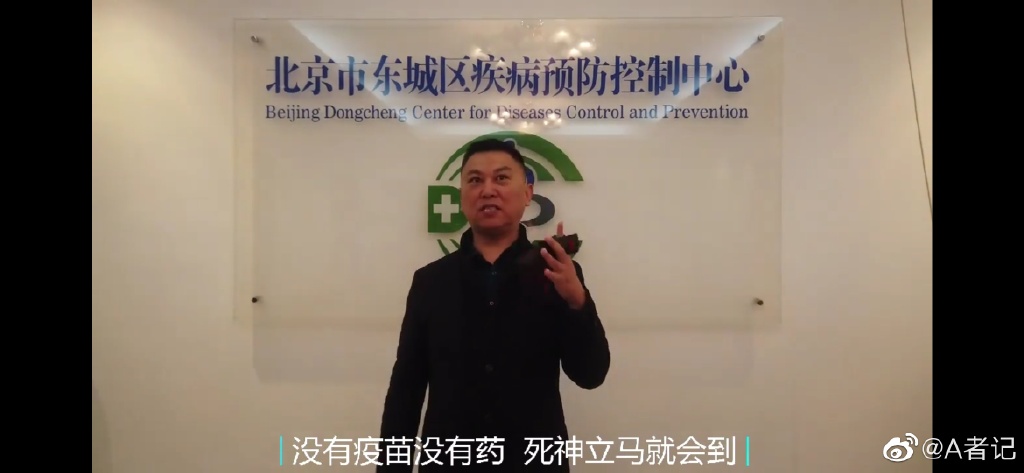Backlash against anti-LGBT rhetoric from Beijing district center for disease control
Backlash against anti-LGBT rhetoric from Beijing district center for disease control

This Sunday, December 1, is World AIDS Day — designated in 1988 by the World Health Organization as an international day dedicated to fighting HIV, showing support for people living with the virus, and helping to reduce HIV-related stigma. To commemorate the event, the Center for Disease Control and Prevention in Beijing’s Dongcheng District released a short video that displayed a shocking level of ignorance and prejudice about the gay community — a segment of the Chinese population that’s most disproportionately affected by HIV/AIDS.
The since-deleted clip (description in Chinese here) was originally published last week on the facility’s official WeChat account (in Chinese), part of a post titled “Protect yourself. Stay away from AIDS.” The roughly two-and-a-half-minute video features Wáng Liánjūn 王联君, head of the center, making a series of problematic remarks while performing shulaibao (数来宝 shǔláibǎo), a traditional Chinese form of rhythmic storytelling to the accompaniment of bamboo clappers.
“Preventing HIV/AIDS is not difficult. Let me educate you with knowledge,” Wang said in the opening of his performance. The director then started sensationalizing the disease by saying, “HIV is contagious. Once you get infected, you are almost bound to die.” Feeding into an array of common misconceptions about HIV/AIDS, Wang at one point stated, “No vaccines and no medicines. Death is right around the corner.”


Then, toward the end, Wang blatantly told viewers not to “engage in homosexual behavior,” perpetuating the prevailing yet troublesome idea that homosexual behavior will inevitably lead to HIV infection, which has brought a remarkable amount of injustice and pressure to the gay community.
On Weibo, LGBTQ rights advocates and allies of the gay community were quick to criticize (in Chinese) Wang’s remarks. “This is deeply offensive and misleading. How could someone like Wang become the head of the center?” one angry Weibo user wrote.
Facing intense criticism on social media, the institute has deleted the video from WeChat, but the removal did little to quell the controversy that even prompted a call for public apologies from the center and Wang. “I demand that the institute issue an apology for publishing discriminatory content and misleading the public, as well as a transparent review of whether Wang is qualified for his position,” a Weibo user commented.
HIV transmission through sex has long been a pressing issue that concerns the gay community in China. According to a 2016 report released by the National Center for Disease Control, rates of HIV infection skyrocketed by more than 400 percent among Chinese gay men after 2011. While China Daily reports that the epidemic among the gay population has been brought under control in recent years thanks to improved education about HIV prevention and other measures, the number of new HIV cases among gay men is still rising rapidly.
As a number of people pointed out on Weibo, for the Chinese gay community, what China’s LGBT community needs the most on World AIDS Day is more understanding, not bigoted remarks from a person responsible for public health.
Commenting on the controversy, the Beijing Queer Chorus, the first public performing LGBT chorus in mainland China, wrote (in Chinese) on Weibo, “It’s bafflingly tone-deaf for a public health institute to spread the fear of HIV/AIDS. The disease can be prevented through scientific measures. It should not be seen as a sin or a topic of taboo. Please embrace people living with HIV with warm hugs.”






